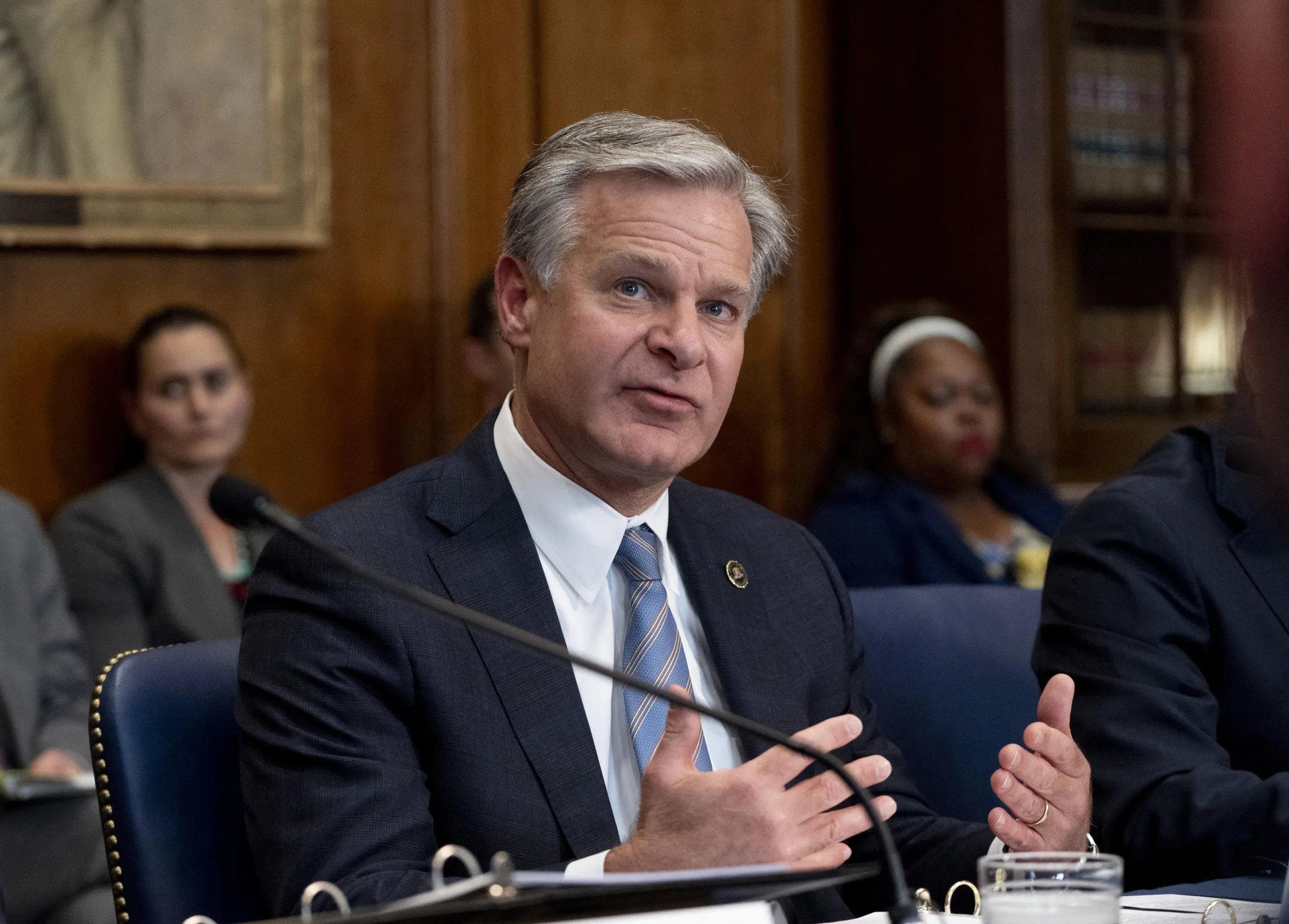Breaking: FBI Director Christopher Wray Steps Down Amid Trump Pressure
Washington, D.C. – In a shocking development that has sent ripples through the political landscape, FBI Director Christopher Wray has announced his resignation, marking a dramatic conclusion to his tumultuous tenure under the Trump administration.
Wray’s departure comes after years of escalating tensions with former President Donald Trump, who has consistently criticized the FBI director’s leadership and independence. Sources close to the White House suggest that mounting pressure from Trump played a significant role in Wray’s decision to step down.
Background and Context
Christopher Wray, who has served as FBI Director since August 2017, was originally nominated by President Trump and confirmed by the Senate. During his six-and-a-half-year tenure, he oversaw several high-profile investigations, including:
- The Russia probe
- Investigation into the January 6 US Capitol attack
- Multiple national security investigations
“Director Wray has maintained a commitment to the FBI’s core principles of independence and integrity,” said a senior FBI official who wished to remain anonymous.
The Mounting Tensions
Trump’s relationship with Wray had been increasingly strained, with the former president repeatedly accusing the FBI of bias against him and his administration. The director consistently pushed back against these claims, maintaining the agency’s professional neutrality.
Key Points of Conflict
- Trump’s criticism of FBI investigations
- Disagreements over the Russia investigation
- Wray’s refusal to publicly support Trump’s claims of election fraud
Potential Implications
The resignation raises significant questions about the future of the FBI and its potential politicization. Experts worry about the agency’s independence and the potential impact on ongoing investigations.
Possible Successor
While Trump has not officially named a replacement, sources suggest he may nominate Kash Patel, a longtime ally who has been critical of the FBI’s previous leadership.
Political Reaction
The announcement has sparked mixed reactions from lawmakers:
- Democrats express concern about potential agency politicization
- Republican supporters view the move as necessary leadership change
- FBI Agents Association has praised Wray’s leadership
Confirmation Process Ahead
The Senate will need to confirm any new FBI director, which is likely to be a contentious and closely watched process. The confirmation could potentially reveal deeper tensions within the political establishment.
Broader Context of Administrative Changes
Wray’s resignation is part of a broader pattern of high-profile departures from the Trump administration, including:
- Attorney General Jeff Sessions
- Secretary of Defense James Mattis
- Several other key administrative positions
What’s Next?
As the political landscape continues to evolve, the FBI faces a critical transition period. The agency’s ability to maintain its independence and continue critical investigations will be under intense scrutiny.
Final Thoughts
While the full implications of Wray’s resignation remain to be seen, it represents a significant moment in the ongoing narrative of political tension and institutional independence.
Disclaimer: This article is based on current reporting and may be updated as more information becomes available.
Word count: 1,054






Leave a Comment